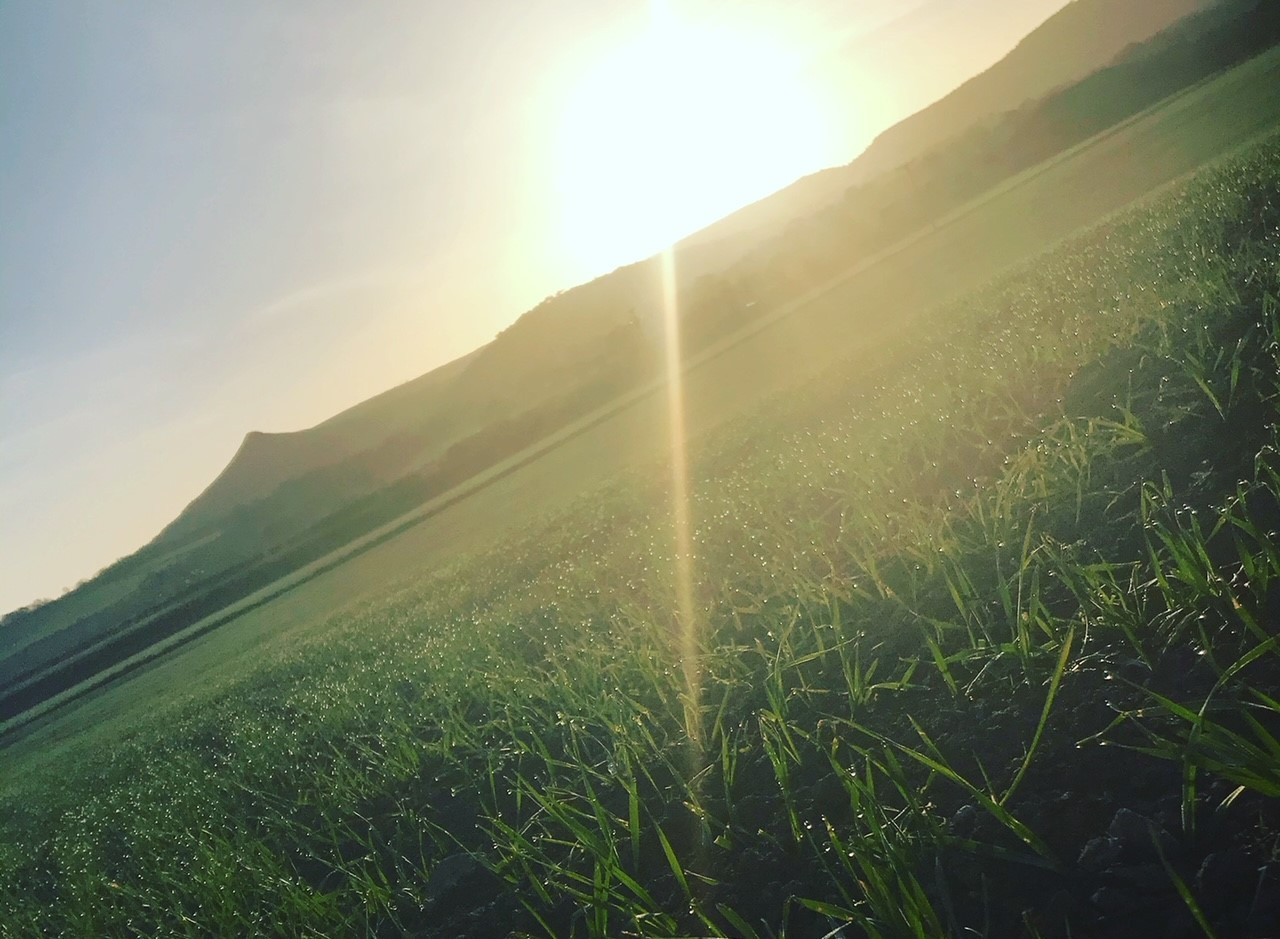How can we bridge the forage gap?
"When one door closes, another opens" - a statement we know all too well in farming. With harvest drawing to a close, efforts are now turning to sowing for the season ahead. It is great to see heaps piled high of dry grain, however, the extreme temperatures and lack of moisture have meant that livestock feed sources have struggled. On my travels around the country visiting farmers, it is clear to see how much damage has been done.
Forage stock levels are considerably lower than in previous years and when you consider the fact that a lot of us are having to feed livestock with this year's produce already, things are starting to look difficult for the season ahead. On my family farm in North Yorkshire consisting of arable, beef cattle and sheep, I am experiencing first-hand the struggles of poor forage crops caused by the dry weather. However, on a more positive note, we should have all now received a substantial amount of rain - finally!
So, what can we do on the back of these recent rainfall events? I think now is the perfect time to take advantage of the growing window while it's still available.
Forage grass
A well-managed grass ley is the cheapest of all forage sources and absolutely vital for any dairy, beef and sheep farmers. In the UK, we are capable of growing over 12 tonnes of dry matter per hectare, but careful selection of both species and variety is crucial. This year, the weather has pushed herbal leys (herb rich swards) into a league of their own and in most cases it has been the only option to continue growing in the drought conditions. This is due to the extended root depths of many of the species included within this mixture - in particular the cocksfoot, chicory and plantain.
We are a bit too late for sowing herbal leys now, but for next spring and onwards my advice is to consider introducing herbal leys onto the farming units because they have multiple benefits. They're high in protein, have no nitrogen requirement, are drought tolerant and have additional pollinator benefits. What is there not to love?
Given the point in time we're at now, grass-only mixtures are the most suitable option and I have seen great success when drilling has happened well into October - as long as conditions allow. Whether you decide to oversow or re-drill, either of these methods will help to provide new growth, which in turn will use the fertiliser, moisture and growth period to provide forage in the spring.
As I mentioned earlier, your choice of species is key and depends on what you plan to achieve. If you would like a ley for short-term cutting, good options are Italian ryegrass, festuloliums or hybrid ryegrass. If you want a ley for grazing only, I suggest late perennial ryegrasses, timothy and fescues. A key tool that I recommend to farmers and use myself is the AHDB Recommended Grass and Clover List, as it shows top yielding varieties in the same way the cereal Recommended Lists work.
Long term grazing mixtures provide a high-quality forage source for the sheep and cattle on my farm in North Yorkshire
Grazing cover crops
Another option to consider is any cover crops you plan to put in, whether as a break between back-to-back grass or as cover before a spring crop or after maize. All of these can be planted as a straight or mixture which can be grazed over winter. For these purposes I suggest staying away from things like buckwheat and look more towards a brassica-based mixture if your rotation allows it. Turnip rape, mustard or especially our KGraze mixture fit perfectly for this. KGraze a great source of forage and has additional soil health benefits in terms of nutrient capture, deep rooting species, nitrogen fixation and increasing organic matter levels.
Forage rye
This is the final option I will mention. It has the potential for high outputs and can be drilled right up to the end of October. Forage rye can produce five to six tonnes per hectare of dry matter and a crude protein of 11-12% - this is a high-quality feed source which delivers very early spring grazing. Italian ryegrass can be added to create a powerful mixture which will make use of your land and extend the rye's grazing period. This works perfectly after maize and as well as holding the soil together well, it also helps to capture and prevent loss of nutrients.
Summary
There is still time for you to get these crops in the ground to help 'bridge the forage gap' on your farm, but for all scenarios it's important to note that the quicker you can get something in the ground the better. Out of the choices I have mentioned, I'm hopeful that you will be able to find a mixture that works well for your rotation. More detail about the options I've listed can be found in the 2022 Kings catalogue.
If you have any questions about the topics I've covered or if you require further technical advice, please contact your local Kings advisor. Alternatively, you can email This email address is being protected from spambots. You need JavaScript enabled to view it..uk or call our free technical helpline on 0800 587 9797.
A statement of condolence from Frontier
We are deeply saddened by the news of the death of Her Majesty the Queen. Our thoughts and sympathies are with the Royal Family.
We have adjusted our customer communications as a result of this news. During the national period of mourning we will continue to publish essential technical advice to assist growers with timely crop management issues.
As a subscriber, you’ll receive email alerts each time a new blog is published so you can always stay updated with the latest advice and insights from our experts








Comments